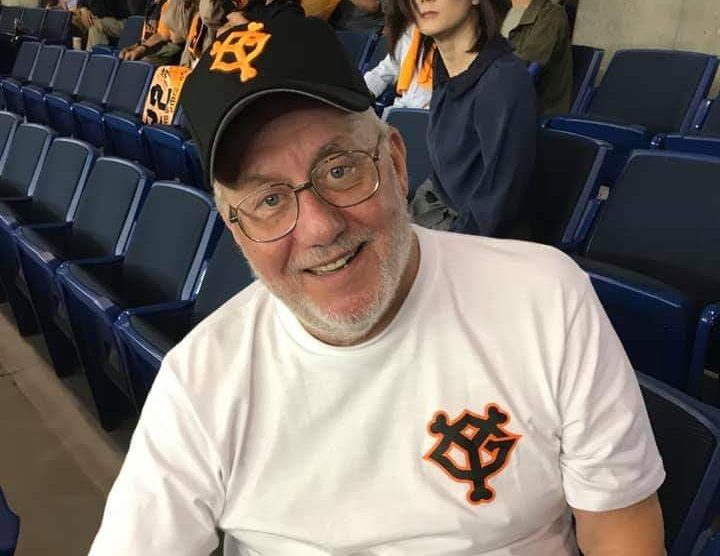
When JapanBall veteran Leon DeHaven hears the old saying about life being about the journey rather than the destination, he must have a good laugh. He’s already packed plenty of journeys and destinations into a single lifetime.
“It’s been a heck of a ride,” DeHaven agreed, in what is a vast understatement.
Born in Woonsocket, Rhode Island, to a military family – his father was a Navy man posted at the time in Newport, Rhode Island – DeHaven didn’t live in one spot for more than a year or two. His dad left the Navy shortly after he was born, enlisted in the Army after a year, and then shifted to the Air Force when it was founded in 1947. After leaving the Air Force, he became a contract technical writer for private companies. He later worked as a carpenter at Wake Forest University in North Carolina.
DeHaven had approximately 25 “home towns” while growing up, summers with grandparents in Maryland, multiple overseas and domestic postings while in the Army, and several very different jobs as a civilian. In addition, he’s seen baseball games in at least six countries, more than 50 major-league stadiums, 15 Japanese ballparks, and a largenumber of minor-league facilities around the country.
After all of the family moves, DeHaven expanded his travels by enlisting in the U.S. Army. He served 14 years on active duty, with postings in Germany, Hawaii, Georgia and Alabama. He started as a cook, became a company clerk – think Radar O’Reilly of M*A*S*H – a legal clerk, and then an instructor in military law for Military Police investigators. While stationed in Hawaii, he earned a Bachelor’s degree in Philosophy and Sociology. During his stint in Alabama, he earned a Master’s in Public Administration.

In 1977, he transferred to the Army Reserve in order to go to Law School. After graduating, he worked for the U.S. Attorney’s office in San Diego. After a year there, he moved to the Social Security Administration as a Title XVI claims representative. Next, he worked with the IRS in Washington, DC, where he wrote private letters rulings and later worked as a Labor Relations Specialist. He finished his career with the Department of Homeland Security as an Asylum Officer.
Meanwhile, he continued his career in the Army Reserve, serving 27 years while continuing his civilian work. In the Reserve, he commanded two Battalions and three companies and also served as a primary staff officer for two generals.
In July 2004, Leon retired from both the Army Reserve and his federal civil service position, but he quickly realized that he was not the retiring type. After just a month or so, he signed up for graduate school and eventually earned a Master of Arts degree in Forensic Psychology. He also volunteered with the City of Tempe (Arizona) Crisis Response team, going out on 9-1-1 calls.
“At first, it was just a way to fill time since I wasn’t working,” DeHaven said, “but I ended up doing it for 10 years, and it got to be pretty interesting and unusual. We’d see plenty of strange things and encounter a lot of odd people. Every case was different. In cases involving death, some people cried; some blamed me; some didn’t show much emotion. Grief is a funny thing…you can never predict what a person is going to be like in that situation.”
Despite all of his positions and far-flung locations visited, he’s never stopped hearing the siren call of baseball – something he initially heard when attending his first major league game in 1962 between the Baltimore Orioles and Boston Red Sox – “Brooks Robinson made a great play” (of course he did!).
His interest then expanded when he was stationed at Pearl Harbor and attending Chaminade University as an undergraduate.
“There was a Japanese television station in Honolulu that broadcast everything in Japanese,” DeHaven said, “and they showed all the games of the [Tokyo] Yomiuri Giants. Often, there was just one camera – behind the plate – and no announcers, so all you’d hear were the ballpark sounds. But I enjoyed watching the games. The Giants had Sadaharu Oh then and were in the middle of winning nine straight championships, so I became a fan.”
During his time there, he had season tickets to the Hawaii Islanders AAA team and also got to see the 1972 World Baseball Classic – a championship tournament matching teams from the U.S. minor leagues and an all-star team from the Caribbean Winter Leagues. The Caribbean team won the title, defeating Albuquerque of the Pacific Coast League in 12 innings.

In 1982, he was posted to Korea with the Army Reserve and read a newspaper story about the opening of the Korean Baseball Organization’s season the next day. He couldn’t find tickets on his own, but was able to convince some personnel from the Armed Forces TV Network to allow him into the ballpark by showing them his Society for American Baseball Research (SABR) membership. That day, he witnessed a couple of incidents that illustrated how different the atmosphere and customs can be from place to place.
“We were waiting to get our press credentials, and some security guys grabbed a guy ahead of us in line, threw him against the wall,” DeHaven said. “I asked what was going on, and they said, ‘He was just wearing a cap of the visiting team.’
“Then, in the seventh inning of the game, they asked everyone to stand and do something like the wave. An old GI who was sitting with his Korean wife didn’t stand, and they hit him on top of the head.”
Since then, DeHaven has continually stoked his interest with domestic baseball trips, in addition to the JapanBall tours – 14 and counting – and other foreign jaunts. Along the way, he’s collected around 1,000 t-shirts and a couple hundred caps – “I’m always looking for the perfect t-shirt.”
He’s attended games in the U.S., Mexico, Canada, Japan, Taiwan and Korea, as well as spring training games, and those of the Arizona Fall League. He’s seen Michael Jordan play for Scottsdale in the Fall League, Hank Aaron hit his 715th home run, Fernando Valenzuela pitch a no-hitter, and 75-year-old Luke Appling hit a home run off Warren Spahn in a 1982 old-timers’ contest. He was at the game when Masahiro Tanaka, then of Rakuten in the Japanese Pacific League, got his 20th victory (leading to an eventual 24-0 regular season record) in 2013. That same year, he watched Wladimir Balentien hit the 54th of his Japanese-record 60 home runs.

“I was also at the game in San Diego when Ozzie Smith made the incredible play on the bad hop,” he said. “. . . Greatest play ever by an infielder.”
He’s also met Sadaharu Oh, as well as Masanori Murakami, the first Japanese player in the Major Leagues, the latter of which is an interesting story in itself.
During the 2016 All-Star Game festivities at San Diego’s Petco Park, DeHaven was walking to a lunch meeting with Bob Bavasi, the founder of JapanBall. He passed a Japanese man and said “Konnichiwa” – which means “good afternoon” in Japanese. As he continued walking, another man stopped him and said, ‘Someone back there is trying to get your attention.’
“I walked back to the man, who was with his wife and daughter, and again said ‘Konnichiwa’,” DeHaven said. “I was wearing an older cap from the Nankai [now the Softbank] Hawks, and he said, ‘That’s my team.’ I thought he might have been an owner or a fan, but he said ‘I pitched for them.’ Then I found out who he was and was able to get a photo with him.”
“When I finally met up with Bob, he said, ‘Why are you late? … You’re never late!’”

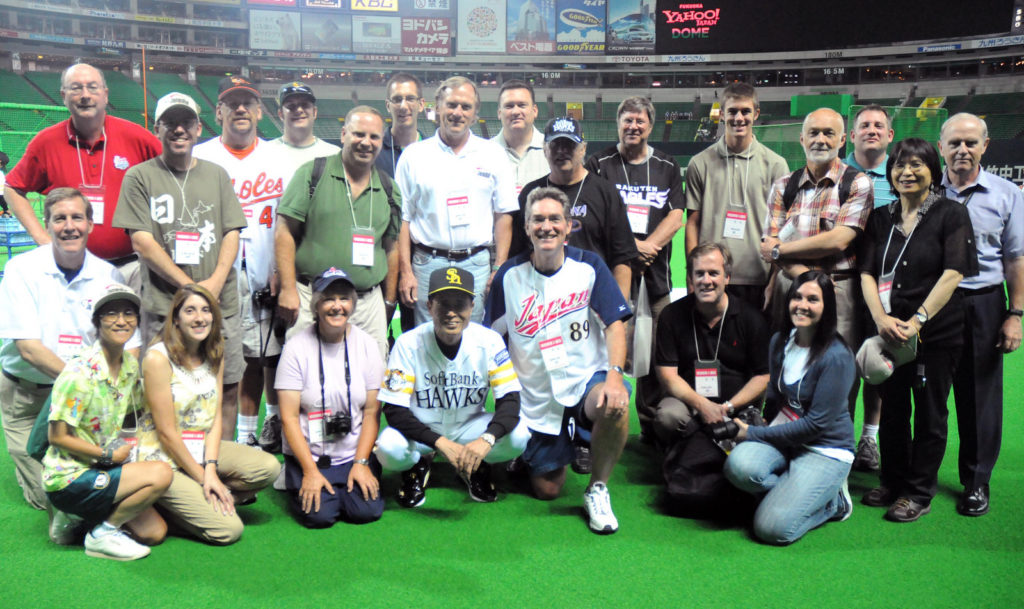
Which brings us to how he got involved with JapanBall.

The initial interest was when he saw the Yomiuri Giants games on television in Hawaii. Then, he attended three spring-training games at Honolulu Stadium in 1972 between the San Francisco Giants and Lotte Orions, predecessors of the current Chiba Lotte Marines.
“I called Bob and found that the 2004 [JapanBall] tour was already sold out, so I signed up for the 2005 trip,” he said. “Then the Army Reserve called me up just before the trip was scheduled, so I wasn’t able to go. I finally went in 2006. There were six of us, and it was a lot of fun. I did the See-It-All Tour [games in every Japanese ballpark] and got into the JapanBall Hall of Fame on the first go-round.”
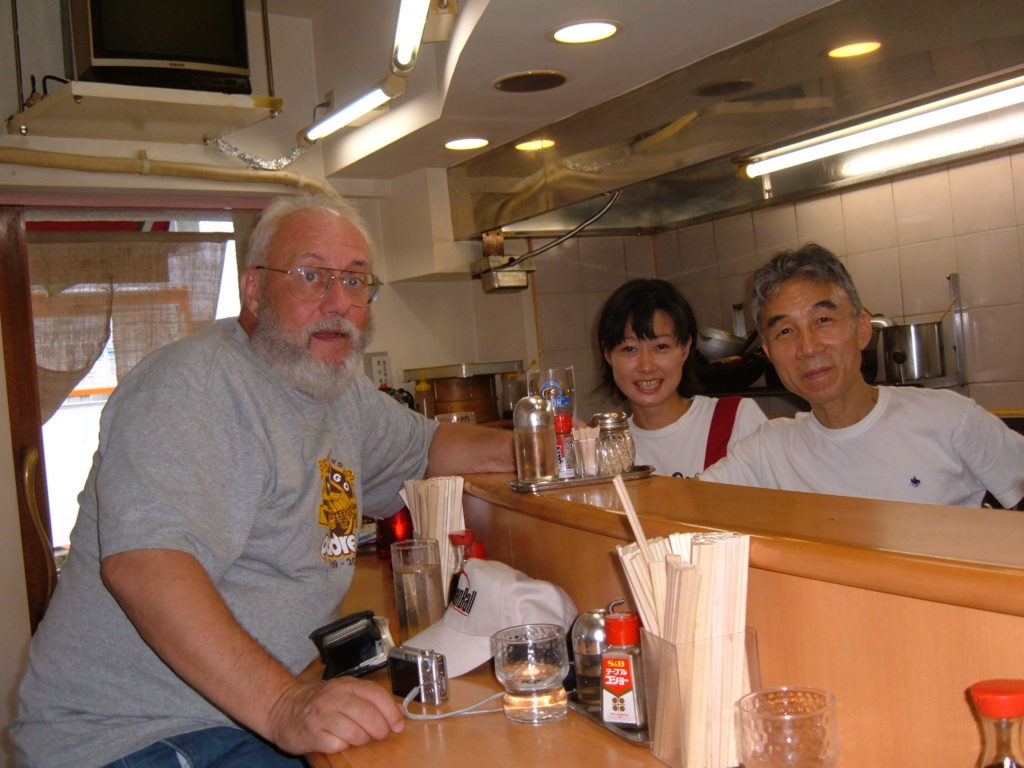
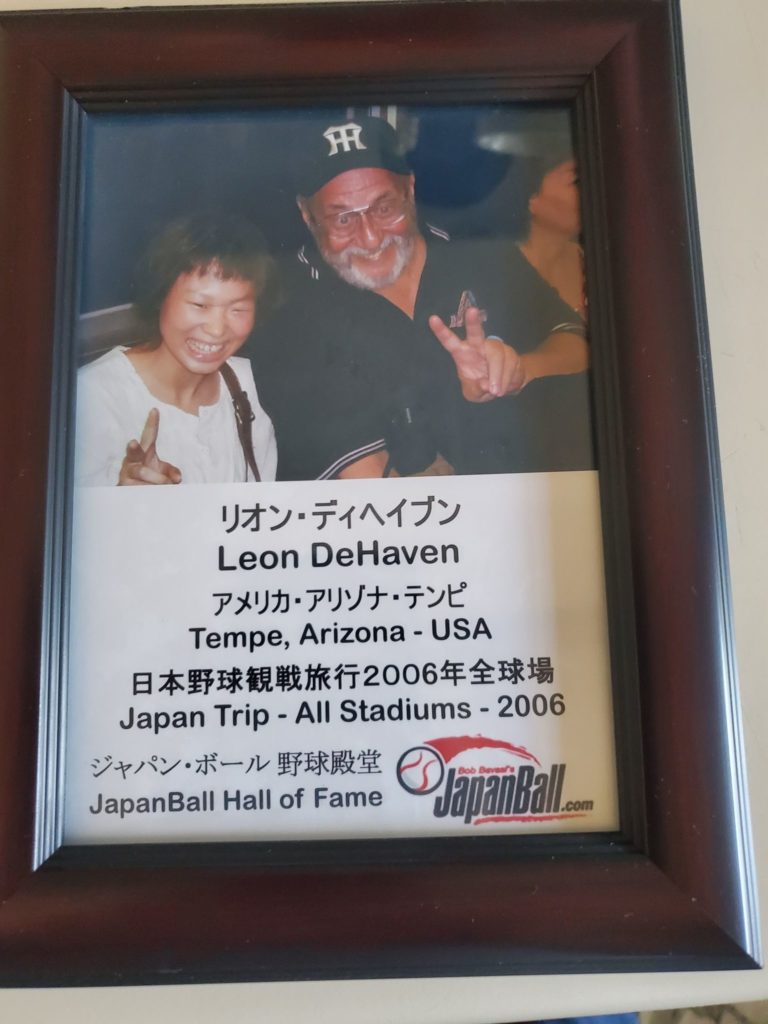
Early on, DeHaven also became sort of an assistant tour guide.
“Leon started coming early on and just keeps coming every year,” Bavasi said. “It got to the point that when I was thinking of something to change, I’d often ask him first. Sure enough, he would have some suggestions. He cares about JapanBall, so I really liked getting his advice. Leon keeps his ears open for what people are saying – when I might not hear something, he would.
“One of the most helpful things he does is bring up the end of the line when the group is walking somewhere. It’s tough to keep everyone together because, inevitably, there are going to be stragglers. But, on his own, he started taking care of the back of the line, and that’s not an easy job. If I could see Leon, I’d keep going. If not, I’d stop.”
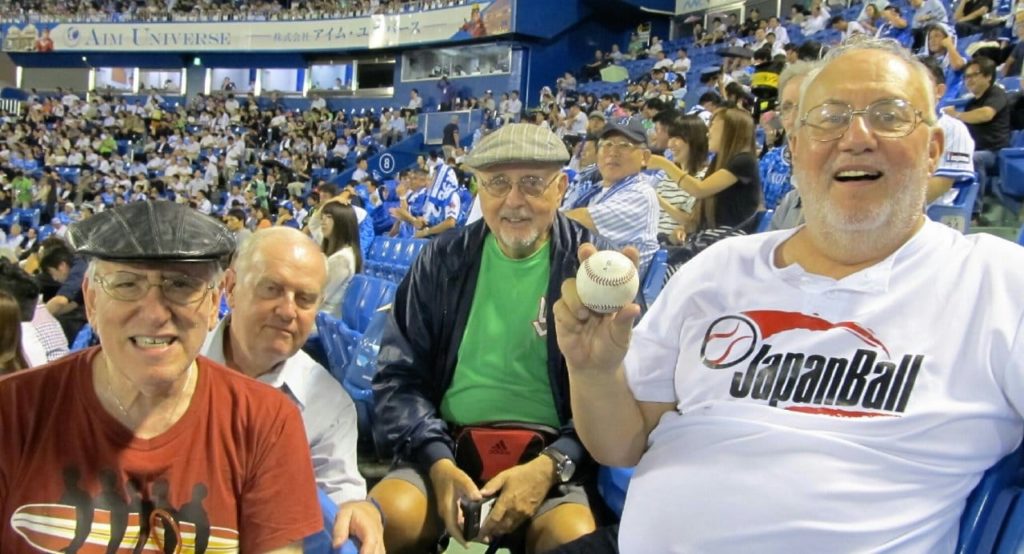
In 2019, DeHaven, along with fellow JapanBall tour veterans John Wilson and Martin “Doc” Flamm, attended games in Korea, scouting it out since JapanBall was considering adding a Korean tour. That didn’t happen in 2020 because of Covid-19, but it’s tentatively on the docket for 2021. If all goes well later this year, DeHaven will do another JapanBall tour, check the newest ballparks in Texas and Atlanta off his list, probably attend some Fall League games and . . . maybe more.
Indeed, there are plenty of journeys and destinations remaining.
Note: To hear Leon share about his baseball fan origins and some of his favorite baseball memories, check out this interview on the Baseball Bucket List Podcast.
1 comment
[…] our lives seem really boring compared to Larry’s,” fellow Hall-of-Famer Leon DeHaven says dryly of the accountant whose star-crossed past resembles that of Forrest […]